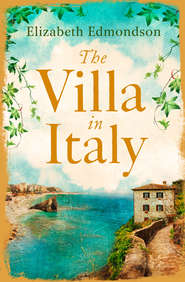По всем вопросам обращайтесь на: info@litportal.ru
(©) 2003-2024.
✖
The Art of Love
Автор
Год написания книги
2018
Настройки чтения
Размер шрифта
Высота строк
Поля
‘He thinks that’s too informal, with your being only sixteen.’
Cynthia noticed that Harriet got round the problem by not addressing Walter at all, by any name.
Cynthia couldn’t talk about Walter with Harriet, for the simple reason that Harriet refused to discuss the subject. ‘You’ve got to do what you want. It’s not as though I’m a child, I’m nearly grown up. Whether or not I like Walter isn’t the point, really.’
Harriet had, on the surface at least, taken the divorce calmly. She didn’t resent Walter for breaking up a happy marriage, that was one good thing. Her clear way of looking at life meant that she accepted that her parents had drifted irrevocably apart.
Although her honesty about her father startled Cynthia, when Harriet, watching her doing her face before going out for the evening, said, ‘It’s not as though I got on well with Daddy.’
‘Harriet! How can you say such a thing? You know he loves you.’
‘Yes, but that doesn’t mean we like each other, does it? Love’s obligatory, but liking’s different. When I was little, I used to pretend I was a changeling. As one does, when one’s reading nothing but fairy stories. I’d imagine that I wasn’t Harriet Harkness at all, but an orphan baby left in a basket on the doorstep.’ She grinned at her mother. ‘Don’t look so shocked, Mummy, children all tell themselves stories, I bet you did, too.’ She wound an arm round her mother’s neck, in a rare gesture of affection, and looked at their twin reflections in the mirror. ‘Only it’s not likely, given that I look so much like you, is it?’
Cynthia woke in the early hours, to find the bedside light still on, and her book on the floor. She lay in a strangely peaceful state of neither being awake nor asleep. The man going up the gangway had brought back such a flood of memories, and now another memory came vividly into her mind.
Another dock, another ship, but this one wasn’t an ocean liner sailing serenely across peaceful seas in comfort and ease. Ronnie’s ship had been battle grey, battered-looking after three years of war, a troop-carrier, taking another batch of fresh-faced young men across to the killing grounds of France, to the misery of trenches and mud and barbed wire, to horrors unimaginable to the wives and girlfriends and sisters and mothers left behind.
Cynthia had driven Ronnie down, strictly against orders. He should have been on the train, but his mate had said he’d fix it with the sarge, pretend Ronnie was in the lavatory, stomach problems. Cynthia had borrowed her brother’s car; he had taught her to drive when she was thirteen, on the quiet roads around Winsley, the house in the country where they had all grown up.
The sergeant, usually eagle-eyed, must have had other things on his mind, because the ruse worked, and by the time he was growing suspicious, there was Ronnie, mingling with the others in his platoon. ‘Just a case of something I ate last night, Sarge, I’ll be right as rain in a day or two.’
The sergeant didn’t know the meaning of the word sympathy. ‘A case of bleeding cold feet, more like it. Don’t think you can get out of it that way, short of being dead, you’re going on that boat, and if you was dead, you’d go just the same so’s we could toss you overboard and save ourselves the bother of troubling the padre. Now, get a bleeding move on.’
And Cynthia, tears gracing her cheeks, had stood beside a bollard, a wan and wretched creature, wondering how Ronnie could look so cheerful as he went up the gangway. He ran his fingers through his short hair, a habit from pre-army days, and then he saw her. His face broke into a broad smile, and he waved and gave her the thumbs up before he was lost in the tide of khaki.
Cynthia stayed on the dock to watch the ship until it was no more than a speck on the horizon. Then she drove slowly back to London, only stopping on the way to find a bush she could be sick behind.
She had been pregnant, of course, pregnant with Harriet, and feeling sick from the word go.
‘Gastric flu,’ Helen had pronounced, in her know-it-all fashion, and packed Cynthia down to Winsley, where Nurse would look after her.
Nurse had known what was wrong with her five minutes after she arrived, and Cynthia wept desperately on her comforting bosom, while the elderly woman stroked her hair and murmured soothing, meaningless words.
Before Cynthia slipped back into a deeper sleep, she thought of Harriet. Term would be over by the time she got back. She had been worried about what to do with Harriet. Helen said she would have her, she would enjoy being with her cousins; Cynthia knew that Harriet would rather stay on at school, alone, than have to spend time with her cousins.
Her brother Max, the brother closest to her in age and the one she felt the closest to, had come to her rescue.
‘I’ll pick Harriet up,’ he’d said in his casual way. ‘Tell me where and when, and I’ll drive down and collect her. That is, if you haven’t sent her to school in the Highlands of Scotland or anything like that.’
‘Dorset,’ said Cynthia. ‘Would you really do that?’ Urbane Max and a girl’s boarding school didn’t seem to go together.
‘She’s my goddaughter, didn’t I say in church when she was christened that I would pick her and doubtless several trunks and a hockey stick up from whichever educational establishment she was at?’
Cynthia laughed. ‘One trunk and an overnight case. I’m not sure about the hockey stick, I think it’s a lacrosse school.’
‘Nonsense,’ cried Helen, breaking into their conversation. ‘Harriet must catch the train. What, pray, would you do with her if you did collect her, Max? I know you’ve got nothing better to do than drive around the country, with the idle life you lead, but Harriet can’t expect to be collected. She must come on the school train like everyone else, and I’ll send Thrush to pick her up at the station — Waterloo, I suppose.’
‘I’ll drive her up to London and take her out for a good meal,’ said Max, ignoring his elder sister’s instructions and addressing Cynthia. ‘She’ll be all right at your house for a couple of days, surely. Won’t that maid of yours be there, if she’s not going with you? Surely Harriet will be better off in her own home.’
‘A girl of that age, in London, on her own? I never heard of such a thing,’ cried Helen. ‘She’ll be up to all kinds of mischief.’
‘She won’t be on her own if there’s a house full of servants,’ said Max.
‘Quite unsuitable, nonetheless. I certainly wouldn’t allow any of my girls to stay alone like that. In London!’
‘If you can’t trust your daughters, that’s your problem,’ Max said. ‘I’ll take her out to a show. Several shows if need be. What does she like, Cynthia?’
‘Take her to the opera, and she’ll be your friend for life.’
‘Opera?’
‘Quite unsuitable,’ Helen said again.
‘Wagner, for preference, I’m afraid,’ said Cynthia.
‘Good heavens,’ said her brother. ‘I’m more of a Mozart man myself, but I’ll see what I can do.’
Max, thought Cynthia through a haze of sleep, was reliable, whatever Helen said about his frippery ways. And was he as frivolous as he seemed? Cynthia had long suspected there was a lot more to Max than met the eye, but he was a cagey man, slippery as an eel when it came to any questions about himself. Harriet would be all right with him, he’d take good care of her. And Cynthia realized, with a pang, that she was looking forward to seeing her daughter again. Almost more than I am to seeing Walter, she muttered to herself. Any problems with Harriet were practical, and time would resolve them. Whereas Walter…
EIGHT
Polly worked at the Rossetti Gallery workshop three days a week. It was a job that had started when she was still an art student on slender means, keen to earn any extra money she could. It had seemed heaven-sent, a job working with pictures, rather than waiting on tables or cleaning houses or collecting debts or any one of numerous jobs that she and her fellow students took to make ends meet.
Rossetti Gallery, with its entrance in Cork Street, was smart, but the premises behind it in Lion Yard were anything but smart. Lion Yard was a narrow, cobbled cul-de-sac, and few of the well-heeled customers who bought at the gallery ever ventured down it. The gallery itself and the main restoration studio, with a discreet entrance further down Cork Street, were forbidden territory to the students, and there was no way into them through their dingy yard. Dickensian, Sam called Lion Yard, and Polly could well imagine some of the novelist’s grimmer characters lurking in the shadows there.
The workshop was a lofty, barn-like-place, redolent of linseed oil and turps and oil paint. Situated above a storage area, it was reached via a rickety wooden outside staircase. Students were taken on to touch up and improve unsaleable old pictures and canvases that the gallery had bought in job lots at country sales, or for a few shillings in the minor London auction rooms.
The truth was, Polly soon realized, that there was an awful lot of dull and downright bad art around. Yet even the most dismal picture, by a hopeless artist, could be made to look much more desirable with careful, skilled work and a sense of what was in fashion.
Polly was started on flower paintings, which always, so her boss, Mr Padgett, told her, found a steady market. Dreary collections of tired-looking blooms in frames that were often worth more than the paintings arrived at the back of the Rossetti Gallery premises, and were taken, minus their frames, up to the workshop to be stacked in daunting ranks on wooden pallets all along one wall.
Mr Padgett, who was quick to weed out those workers he considered would never make the grade, had watched Polly for a few days, and then told her that she would do. ‘Unlike a lot of art students, you can paint. I don’t know what they teach you at these colleges these days,’ he grumbled. ‘Some of you don’t seem to know how to hold a brush or draw a curved line.’
‘Modern art isn’t about painting or drawing curves, Mr P, ’ retorted Sam Carter, a cheeky young student with a lock of hair falling over his forehead. ‘Times have changed, you’ve got to keep up. Anything is art now, if you say it is.’
‘Maybe to you it is, but it’s not to our customers, so just you hurry up and finish that landscape before those cows there die of old age.’
Sam, a student at the Academy, could draw or paint almost anything, and Polly envied him his facility. Under his skilful hands, landscapes bloomed, animals looked as though they belonged to a known species, ships sailed and fought as though they meant it, and faces changed from blurred ugliness to beauty, which was why, despite the avant-garde nature of his own work and his scorn for all old-fashioned representational art, he was kept on at the workshop while others came and went.
Mr Padgett, seeing Sam idly sketch a Quattrocento face, or draw a detail of a hand in the style of Rembrandt, had wanted him to move on to the main restoration studio, where the fine and valuable paintings were dealt with. ‘You’d work on old masters there, national treasures even. Mr Dinsdale has a top reputation, you couldn’t learn from a better man. It’s a good, steady career for an artist of your talent.’
Sam had laughed and said he’d rather be poor and do his own work, thank you, and stayed on at the workshop.
Meanwhile, Polly’s work turning dreary flowers into skilfully and pleasingly-coloured flower paintings such as would adorn any home, gave satisfaction. She did some work on landscapes, adding various animals on Mr Padgett’s instructions. ‘Buyers go for cats,’ he would say. And he approved of her horses, which, added to another blank country scene, made an uninspired picture much more interesting.
Polly had her doubts as to the strict legality of what she was doing, but Mr Padgett assured her that since these works were almost all by unknown artists, and no pretence was made that they were anything else, where was the harm in making an unsaleable picture into one that a buyer was happy to hang on his wall?
‘Artists don’t always know best. If I had the painter of that landscape here, look at it, a few desultory hedges, a river going nowhere, a broken down bit of fence, I’d soon tell him what it needed to make a proper composition. And he’d be glad to learn, and wouldn’t make the same mistake again.’









